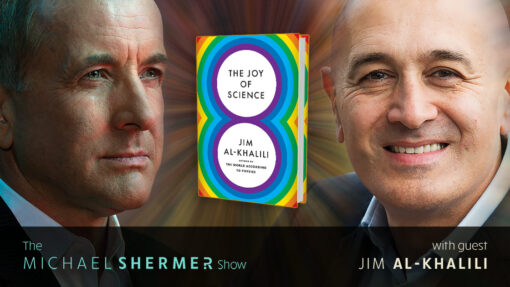
Michael Shermer speaks with quantum physicist, Jim Al-Khalili, who reveals how 8 lessons from the heart of science can help us all get the most out of our lives.


Michael Shermer speaks with quantum physicist, Jim Al-Khalili, who reveals how 8 lessons from the heart of science can help us all get the most out of our lives.
Mark W. Moffett remind us that breakthroughs in science often come about by exploring points of similarity between things that are normally seen as very different. PLUS: Michael Shermer speaks with quantum physicist, Jim Al-Khalili, who reveals how 8 lessons from the heart of science can help us all get the most out of our lives. PLUS: In SRC Report PCIS-005, we take a look at Conspiracy Theory Endorsement by Generation.
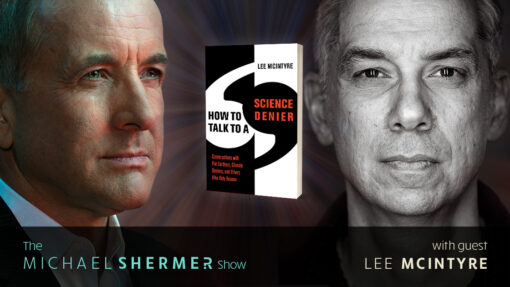
Science deniers are not merely uninformed—they are misinformed. How can we get them to change their minds and accept the facts when they don’t believe in facts? In episode 203, Michael Shermer speaks with Lee McIntyre about how to talk to science deniers such as flat earthers, climate deniers, and others who defy reason, and why it’s important to do so.
Science deniers are not merely uninformed—they are misinformed. How can we get them to change their minds and accept the facts when they don’t believe in facts? In episode 203, Michael Shermer speaks with Lee McIntyre about how to talk to science deniers such as flat earthers, climate deniers, and others who defy reason, and why it’s important to do so.
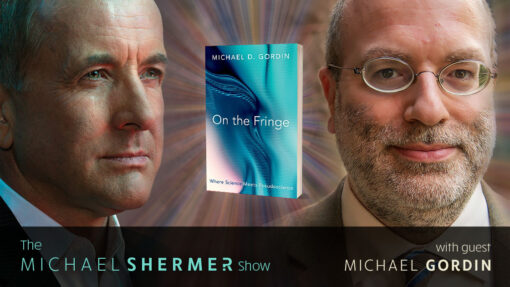
Everyone has heard of the term “pseudoscience,” typically used to describe something that looks like science, but is somehow false, misleading, or unproven. In episode 191, Michael explores with Michael Gordin the philosophical and historical attempts to address the problem of scientific demarcation.
Everyone has heard of the term “pseudoscience,” typically used to describe something that looks like science, but is somehow false, misleading, or unproven. In episode 191, Michael explores with Michael Gordin the philosophical and historical attempts to address the problem of scientific demarcation.
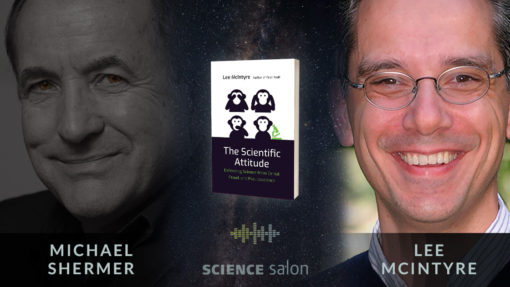
In Science Salon # 77, an engaging conversation on the nature of science, Dr. McIntyre and Dr. Shermer get deep into the weeds of where to draw the line between science and pseudoscience.
In Science Salon # 77, an engaging conversation on the nature of science, Dr. McIntyre and Dr. Shermer get deep into the weeds of where to draw the line between science and pseudoscience. PLUS Dr. John Glynn reflects on our ever-increasing sensitivity to the perception of harm in an article about concept creep.
Dr. Shermer reflects on the question “What is Truth?” in the context of his lifelong search to understand why people believe weird things.
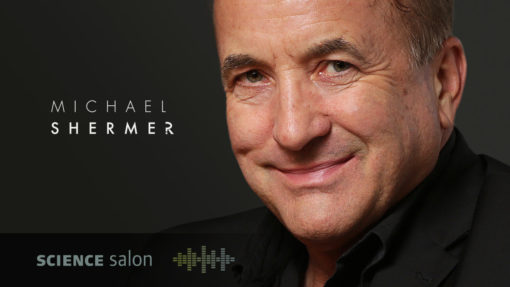
In this live podcast event hosted by the Santa Barbara Science Salon in conjunction with the Skeptics Society and the Unitarian Society, co-hosted by Dr. Whitney Detar, Dr. Shermer reflects on the question “What is Truth?” in the context of his lifelong search to understand why people believe weird things.
Whether at home or on the go, the SKEPTIC App is the easiest way to read your favorite articles. Within the app, users can purchase the current issue and back issues. Download the app today and get a 30-day free trial subscription.







